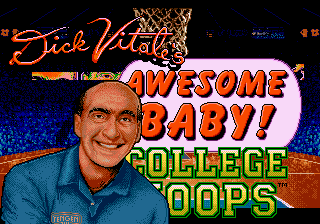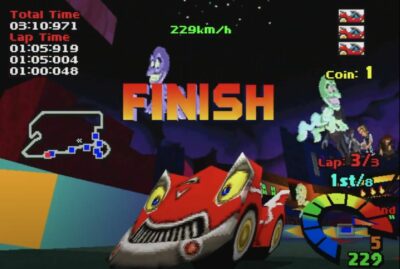
As a documentarian, recording the antics of a video game company from the past requires me to be thorough. A lot of people might imagine this means a great deal of research; going beyond the Wikipedia page, poring through old magazine articles, listening to interviews, finding as many angles as possible on key moments, or unfinished titles. In all honesty, however, the meat of this research lies in simply playing the company’s games: to try, as much as possible, to play everything a studio released – not just the big successes and failures, but a myriad of generally forgotten titles that may well mostly be mundane. Why? Because to do this provides an all-important context and fits the entire patchwork of a company’s history together, rather than having moments or games exist in vacuums – and it’s in this practice where the appeal of chronogaming, or chrongaming, becomes readily apparent.
Chrongaming is a pretty simple thing to do on paper – you take a company, or most usually an entire platform, and you play everything in as close as possible to the order it was released. You leave nothing out, embracing what may well be an entire raft of games involving exciting subjects like mah-jong, pachinko, or dating, and usually, you try to record some sort of thought on everything you play. In this day and age, it’s something of a defiant process – in the retro world, we’re often guided towards experiencing games thematically, even if that grouping is simply the very best games, the worst ones, or the hidden gems that don’t get enough love.
Chrongaming rejects all of these themes, and yet it makes the important games feel even more impactful – when you approach a classic with an idea of the mediocre also-rans that surrounded it, you get more of a feeling for why a particular game managed to stand out from the crowd, and you’re closer to the experience people had when the game came out.
Appropriately enough, it can be a time-consuming process – to play everything means to take a bit of time over it, the sort of thing we’re always told we don’t have nowadays. It’s also an intimidating one – there are many unfinished attempts at chrongaming out there simply because the task someone set themselves was too massive. You may be more comfortable just watching other people take that task on, and fortunately, there exists the likes of Dr. Sparkle, Generation 16, and Jeremy Parish, who’ve happily been recording their chrongaming exploits for years on YouTube.
But even if you don’t choose to chronologically play every release for the ZX Spectrum, you can apply a little of the practice. Before you choose to play a much-loved retro game, whether it’s for the first or tenth time, have a little look at the games surrounding it, the ones you don’t remember. I can assure you it’ll be fun and interesting, and while the games you uncover might occasionally be baffling, playing them will make the end result that much sweeter.





